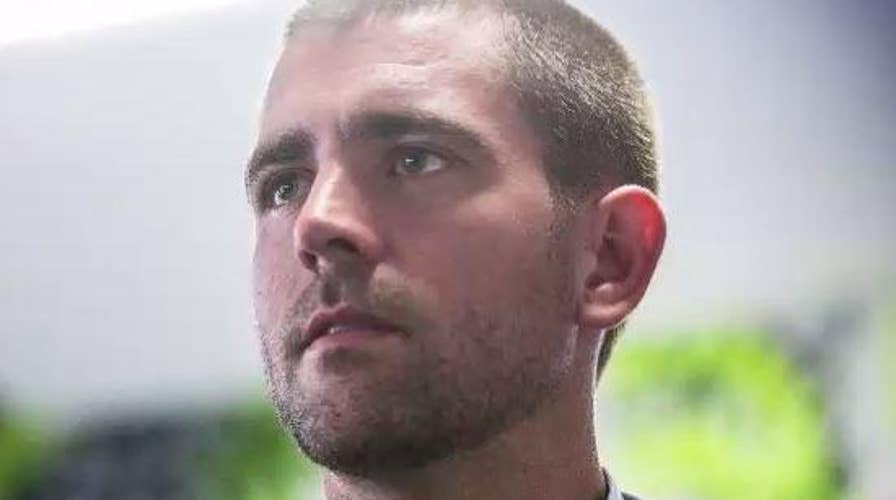Facebook pivots towards a more privacy-centric model as its chief product officer Chris Cox announces he’s leaving
Facebook pivots toward a more privacy-centric model as its chief product officer Chris Cox announces he’s leaving the company.Reports suggest that Cox’s departure stems from disagreements with CEO Mark Zuckerberg over the company's new plans.
Facebook chief product officer Chris Cox announced he would be leaving the company as the company pivots toward a more privacy-centric model. While the departure comes as a surprise to some, a new report suggests that the departure stems from disagreements Cox had with CEO Mark Zuckerberg over the company's new plans.
Citing several people familiar with the matter, The New York Times reported that Cox, who helped build Facebook's News Feed, was concerned that the push toward a "unified messaging" project and several other product ideas and changes from Zuckerberg would not work. Cox disagreed with Zuckerberg's changes and ultimately, handed in his resignation earlier this week.
The Facebook exec seemed to hint at the disagreement between the two in his goodbye message, which was posted publicly to his page.
FACEBOOK COULD THREATEN DEMOCRACY, WARNS FORMER GCHQ CHIEF
"As Mark has outlined, we are turning a new page in our product direction, focused on an encrypted, interoperable, messaging network," Cox wrote. "It's a product vision attuned to the subject matter of today: a modern communications platform that balances expression, safety, security, and privacy. This will be a big project and we will need leaders who are excited to see the new direction through."
In addition to the departure of Cox, who some believed was a successor to Zuckerberg, the head of WhatsApp, Chris Daniels, is also leaving.
“Companies undergoing major strategic or cultural transformations often look outside the organization for one or two key people to magically bring about the desired change," True Talent Advisory Co-CEO Brad Stadler, said in comments obtained by Fox News. "While hiring new executives with fresh perspectives can be valuable, businesses tend to neglect its emerging leaders - those with underutilized skills, ideas, and passion. This untapped talent, which already sits inside the organization, can be efficient drivers of change."
When asked for comment, Facebook referred Fox News to Cox and Zuckerberg's posts.
Privacy changes
Earlier this month, Zuckerberg announced a massive change to the way Facebook works, indicating that the future of the social networking giant would be more private conversations and less public broadcasting. The changes are a concerted effort to weed out many of the problems it has run into in recent months, including the nefarious use by Russian trolls to influence the 2016 U.S. presidential election.
“Frankly we don't currently have a strong reputation for building privacy protective services, and we've historically focused on tools for more open sharing,” Zuckerberg wrote in a blog post, announcing the changes. “But we've repeatedly shown that we can evolve to build the services that people really want, including in private messaging and stories.”
The Menlo Park, Calif.-based tech giant is still feeling the shockwaves from the Cambridge Analytica scandal, as well as the aforementioned situation with Russia and a host of other other privacy lapses. As a result of these lapses, there have been calls for regulations that would hold companies more accountable when they improperly expose their users' information.
Democratic presidential candidate Sen. Elizabeth Warren has gone so far as to suggest she will break up Facebook (in addition to Amazon, Alphabet and Apple), stating that "we need to stop this generation of big tech companies from throwing around their political power to shape the rules in their favor and throwing around their economic power to snuff out or buy up every potential competitor."
FACEBOOK SLAMMED FOR ALLOWING 'FRIENDLY FRAUD' AS KIDS RAN UP MASSIVE BILLS ON GAMES
As part of an effort to make amends, Zuckerberg has announced plans to stitch together its Messenger, WhatsApp and Instagram messaging services so users will be able to contact each other across all of the apps.
“We want to give people a choice so they can reach their friends across these networks from whichever app they prefer,” said Zuckerberg, in his post. “We plan to start by making it possible for you to send messages to your contacts using any of our services, and then to extend that interoperability to SMS too. Of course, this would be opt-in and you will be able to keep your accounts separate if you'd like.”
However, critics have said they're not convinced Zuckerberg is truly committed to meaningful change.
"This does nothing to address the ad targeting and information collection about individuals," Jen King, director of consumer privacy at Stanford Law School's Center for Internet and Society, told The Associated Press. "It's great for your relationship with other people. It doesn't do anything for your relationship with Facebook itself."
Zuckerberg’s move is also seen as a strategy to blunt potential antitrust action against the social network.
Shane Green, U.S. CEO of data privacy app digi.me, says that the Facebook chief is keen to stall any attempt to regulate the social network. "Mark Zuckerberg’s announcement that Facebook will start to embrace privacy and encryption on their apps is another effort to buy time and hold regulators at the gate," he said, in a statement emailed to Fox News.
However, Green adds that Zuckerberg's plan does not address the real problem, which is Facebook's business model. "When revenues are based on owning and exploiting user data, it is disingenuous to suggest that these measures will make a difference and eliminate harm to users," he explained.
Attila Tomaschek, digital privacy expert at BestVPN.com, said that Facebook’s announcement is a step in the right direction.
CLICK HERE TO GET THE FOX NEWS APP
“The timeline for Facebook’s move towards a privacy-first approach will likely be measured in years rather than weeks or months, but the move is encouraging nonetheless,” he explained, in a statement emailed to Fox News. “Zuckerberg’s announcement shows that he is willing to make whatever potential advertising and financial sacrifices need to be made in order to achieve his vision of a more private social networking platform.”
The Associated Press and Fox News' James Rogers contributed to this report.









































